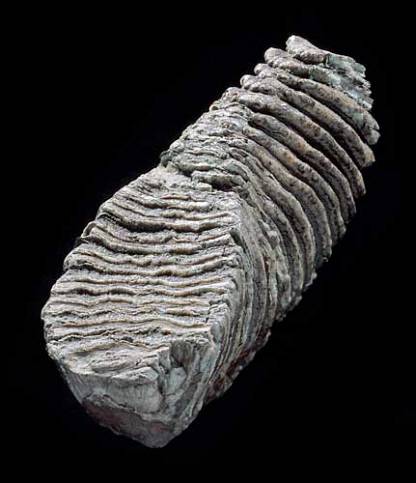Palaeo-ecosystems in Pleistocene Europe: Insights from stable isotopes of large mammal fossils
Prof. Hervé Bocherens, University of Tübingen, Germany
Tuesday 3rd February - 4.00 pm
Earth Sciences Seminar Room (Basement, WEB 05, the previous Mineralogy Seminar Room)
The climatic fluctuations of the Pleistocene have caused dramatic changes in the ecosystems of Europe during the last million years. These ecosystems, cold or warm, included a high diversity of megafauna, in contrast to recent ecosystems under similar climatic conditions.
 Tooth of a woolly mammoth (Mammuthus primigenius)
Tooth of a woolly mammoth (Mammuthus primigenius)
To gain a better understanding of the functioning of these ecosystems with no modern analogue, the isotopic composition in carbon, nitrogen and oxygen of the large mammal fossil bones and teeth were used to document key aspects of their ecology, such as habitat, diet preference, niche partitioning, and predator-prey interactions. In addition, isotopic analysis of fossil hominids and their prey allows the reconstruction of subsistence patterns and inferences on the possible anthropogenic impact on the environment.
More information on attending seminars at http://www.nhm.ac.uk/research-curation/news-events/seminars/


